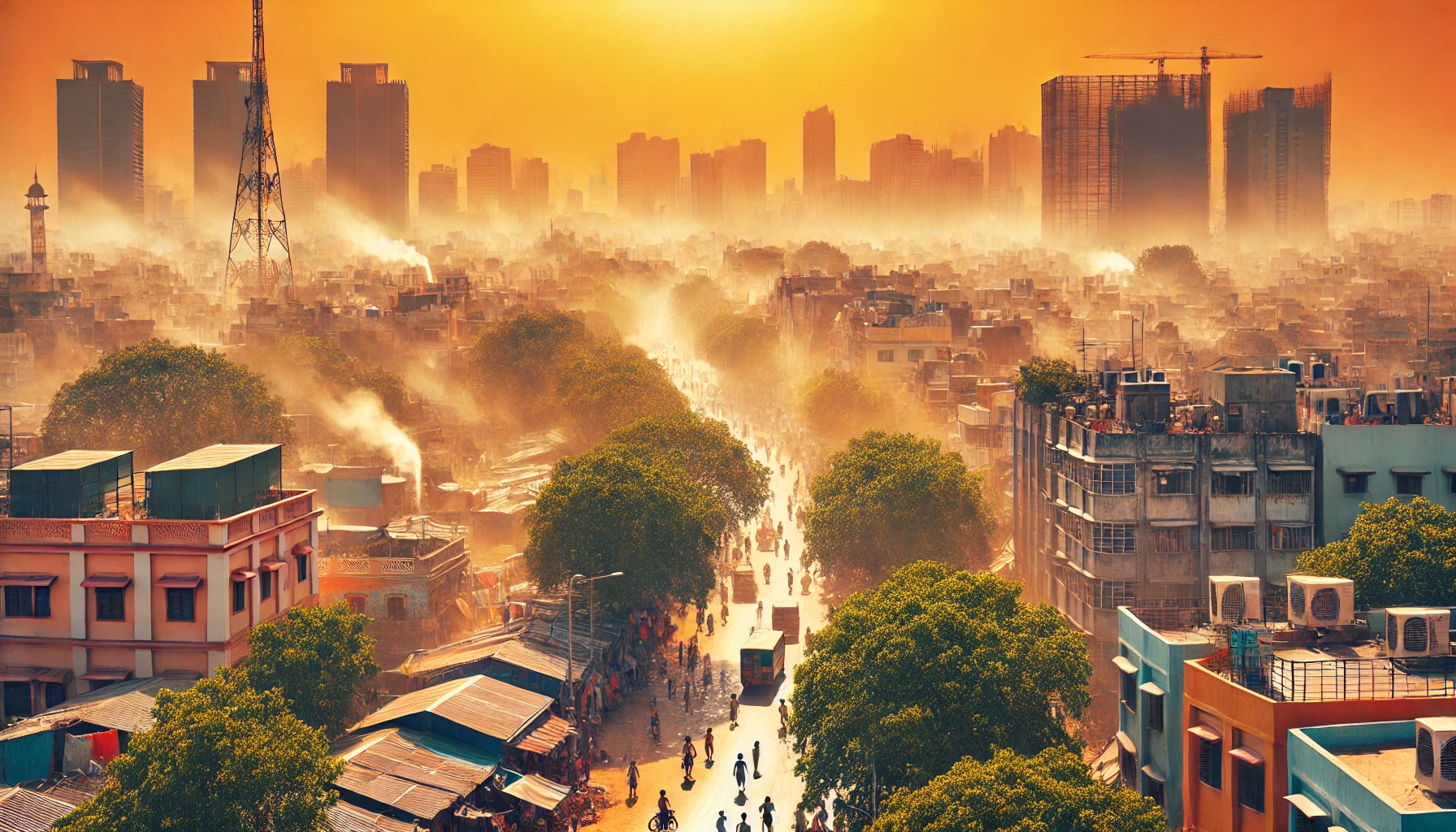World Bank Warns Rising Heat Threatens Health, Economy, and Growth in Bangladesh
The study, launched today, underscores the growing costs of extreme heat on human capital and the economy, and calls for urgent, coordinated adaptation measures to protect citizens and sustain growth.

- Country:
- Bangladesh
Bangladesh is facing escalating risks to public health, mental well-being, and national productivity due to rising temperatures, according to a new World Bank report titled “An Unsustainable Life: The Impact of Heat on Health and the Economy of Bangladesh.” The study, launched today, underscores the growing costs of extreme heat on human capital and the economy, and calls for urgent, coordinated adaptation measures to protect citizens and sustain growth.
Rising Temperatures and Heat Index
The report analyzed national temperature and humidity patterns spanning nearly five decades (1976–2023), combined with data from a new 2024 household survey covering more than 16,000 individuals. Since 1980, Bangladesh’s maximum recorded temperature has increased by 1.1°C. However, the heat index—or the “feels like” temperature—has surged by a striking 4.5°C due to combined heat and humidity. This rise has triggered a wave of health challenges, exacerbated mental health risks, and fueled productivity declines across the country.
Severe Health Impacts
The consequences of rising temperatures are particularly pronounced during summer months. Incidences of diarrhea and persistent cough double compared to the winter season, while respiratory illnesses and chronic fatigue become widespread. Vulnerable groups—especially women—face a heightened risk of exhaustion and heat stroke.
Mental health has also emerged as a significant concern. Rates of depression and anxiety are closely linked to exposure to heat. Depression tends to rise progressively with age, while anxiety peaks between the ages of 50 and 65. The combined effects of physical illness and mental stress are reducing quality of life and placing added pressure on healthcare systems.
Productivity Loss and Economic Toll
The World Bank’s findings reveal that Bangladesh ranks second globally in exposure to elevated temperatures. Dhaka, the capital, has been particularly hard-hit: its heat index has increased about 65 percent more than the national average.
In 2024 alone, heat-induced health conditions led to the loss of 250 million workdays, costing the economy up to $1.78 billion, or around 0.4 percent of GDP. These losses threaten long-term economic growth by eroding human capital and reducing labor productivity, particularly in sectors that depend heavily on outdoor work.
Expert Warnings and Insights
Jean Pesme, World Bank Division Director for Bangladesh and Bhutan, emphasized the gravity of the findings: “Extreme heat is not just a seasonal inconvenience. Its impact is far reaching. As we see in Bangladesh, the rising temperature is affecting our health and productivity, and the country’s prosperity. By building on its climate adaptation experience and taking a coordinated approach across sectors, Bangladesh can address heatwave impacts and maintain sustainable growth.”
Iffat Mahmud, Senior Operations Officer at the World Bank and co-author of the report, added: “Our analysis shows measurable links between exposure to heat and poorer health outcomes, alongside substantial productivity losses. Like many other countries, Bangladesh faces real risks of lost human capital and productivity. Evidence-based policies and targeted investment for adaptation can improve well-being and secure a healthy future.”
Recommendations for Adaptation and Resilience
The report calls for a multisectoral approach to combat escalating heat risks. Suggested measures include:
-
Strengthening health systems to diagnose and treat heat-related illnesses.
-
Enhancing urban resilience through green infrastructure such as parks, trees, and cooling zones.
-
Expanding data collection on weather, temperature, and health to better inform decisions.
-
Boosting preparedness at the national and local levels to respond to heatwaves effectively.
-
Mobilizing financing, both international and domestic, to fund adaptation strategies and mitigate the impact of climate change.
A Call for Urgent Action
The findings highlight that without immediate adaptation, the worsening impacts of heat could undermine decades of development progress in Bangladesh. Addressing these challenges requires collective efforts from government institutions, the private sector, development partners, and communities.
By investing in resilience today—through climate-smart infrastructure, strengthened healthcare, and targeted interventions—Bangladesh can safeguard its citizens, protect livelihoods, and sustain economic growth in the face of intensifying global warming.










